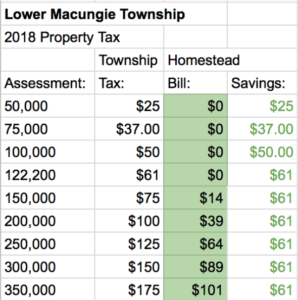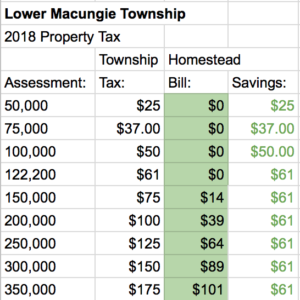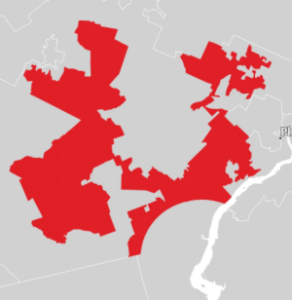I voted in favor of the 2018 budget this year. The 31.7 million dollar budget accomplished a number of important items on behalf of our 32,000 residents. First, it reduces general fund spending year over year, maintains the lowest suburban millage rate in the entire Lehigh Valley and continues the use of homestead and farmstead to reduce residential property tax bills including complete elimination of the township bill for 1,329 residents. While being a taxpayer friendly budget it also maintains the high level of municipal services that our residents expect and ensures continued capital investments in our community according to our adopted 5 year capital plan.
General Fund spending reduced:
2017 approved General Fund Spending: 14,702,900
2018 approved General Fund Spending: 13,682,385
This represents a 7% decrease in planned general fund (recurring) spending.
On the capital side of things major investments include:
-A new traffic light at Minesite and Cedar Crest tentatively planned for 2018.
-A new aerial truck and other apparatus’s for the Fire Dept.
-Incremental park improvements
-Purchase of more snow plow capable pickup trucks and 1 additional small dump.
-1.6 million set aside for farmland and open space preservation
Homestead Property Tax Relief.
The first column is your assessment, the second is what your tax bill would be without Homestead (the lowest Suburban millage in the County), the 3rd green column is what your bill is with homestead and finally the amount you save this year.

*2018 (for 2017 tax year) Homestead applications have been mailed out to homeowners by Lehigh County. Make sure you are enrolled! Call Lehigh County assessment office at 610.782.3038 if you aren’t sure.
Last year I voted “NO” on the 2017 budget. I explained that vote here. This year, I voted “YES” despite dissatisfaction with the scale of the community center expansion. My vote was primarily on the merit of reducing the planned overall general fund (recurring) spend year to year. This was a goal. I was not going to vote on any budget that increased general fund spending. We did one better, we actually reduced this year.
With the Community center project – I opposed at multiple points growing costs, including most recently voting against the addition of a $95k reception area front desk “add on” which was proposed very late in the game and added to project scope and costs. We were able to secure a stand alone vote on that item, but unfortunately we failed to remove it 3-2. While failing at removing that item, we were however able to remove by a 3-2 vote another 70k last minute addition of a sound proof ceiling in the 2nd gym. These last minute add ons represented luxuries not necessities. And if needed, things that should have been addressed in the initial design phase. Not cobbled together at the last minute and at great (in the case of the desk shockingly so) cost.
Also, I was again disappointed that the budget included another 15% sewer rate increase. But please note and understand, this is an unfunded mandate dictated by the EPA. I’ve talked about this at length here on this blog. Learn more about the EPA mandate here. The township must (and in fairness should) address the sewer infiltration issues or face significant fines from the EPA. While this year represented a right sizing of the quarterly bill relative to the mandate, I will not support any additional increases next year.
For 2018 I also have the following goals for the budget:
1.) It’s my intention to introduce a homestead rate that completely eliminates the township property tax for homestead qualifying residents. This was setup by the successful passage of the November homestead referendum. I’ve written about this many times on this blog over the last couple years why and how we accomplish this.
2.) I would like to propose a policy that future spending increases cannot surpass the rate of inflation without a referendum. This would be a companion to the fund balance policy we adopted a few years ago. It represents financial restraint as a matter of policy and would send major discretionary spending decisions directly to voters.


 I wanted to take a moment to share the link below. It’s a quick read and sums up broad themes why I’m running for State Representative. Items even more relevant now that we’re challenging an incumbent.
I wanted to take a moment to share the link below. It’s a quick read and sums up broad themes why I’m running for State Representative. Items even more relevant now that we’re challenging an incumbent. Or if you prefer you can mail contributions to:
Or if you prefer you can mail contributions to:


